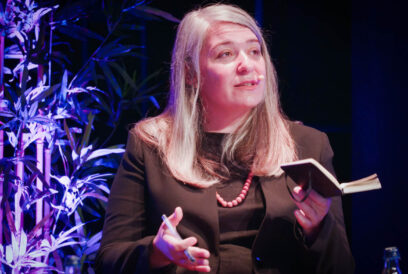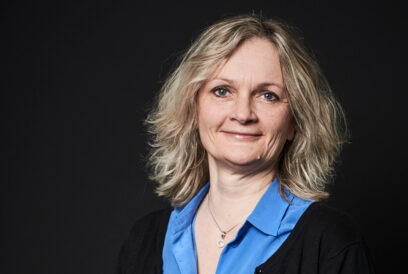

The adult education community should be aware and self-confident enough to maintain a strong position as the future of funding is currently being decided. Adult learning should not be the 5-percent-Cinderella of Erasmus, writes Michael Sommer. The text is a column written for issue 2/2018 on Adult Education and the EU.
Erasmus+, the European programme supporting mobility and innovation in the education sector, is currently receiving a makeover. 2021 is going to mark the start of the new funding period.
At present, a Europe-wide consultation phase is taking place involving different stakeholders, players and practitioners.
In its new financial strategy, the Commission proposes “Investing in people” with a stronger focus on youth:
“This will be achieved by doubling the size of Erasmus+ to €30 billion and the European Solidarity Corps to €1,26 billion budgets to give opportunities to more young people to study, train and volunteer abroad, and by earmarking funding for addressing youth unemployment within the European Social Fund,” a press release from May 2018 stated.
THOSE WHO CARRY OUT PROJECTS in the adult education and vocational education sector within the Erasmus+-programme were invited to a conference in Cologne, Germany.
A key demand voiced during this conference by adult educators who manage European projects was to maintain or even expand adult education as its own visible and important mainstay within the programme.
The relevance of this demand becomes even clearer when you consider big challenges such as functional illiteracy or the integration of refugees, according to the unanimous opinion of the respective working group.
Other demands of AE practitioners in the Cologne conference included new ideas and concepts concerning political education to promote European awareness and consolidation of European identity.
Ideally, this should be the core mission of a European educational programme, they claim. Low-key “learning-partnerships” would become possible as well as introducing mobility programmes for adults comparable to those for young school-leavers in occupational training.
In her speech at the conference, Petra Kammerevert, Chairperson of the Committee for Education in the European Parliament, made clear that the Erasmus+ budget will definitely be significantly increased. The EU Parliament is currently negotiating to triple these funds while reducing funds for other sectors due to Brexit.
Jean-Claude Juncker, President of the European Union, also expressed his wish to double the number of young people participating in the Erasmus+-programme by 2027.
Prospectively, the main aim is to increase the mobility rate among students and apprentices/ trainees.
FOR THE ADULT EDUCATION SECTOR, Mrs Kammerevert and others on the conference panel representing the Federal Ministry of Education and Research, the National Agency and the Commission issued some sort of guarantee of existence but did not give any clear perspective on increasing its importance.
The discussion was characterised by the new policy of the EU to increase the importance of education significantly.
An example of this new policy was the first EU education summit held in Brussels at the end of January as a first step to creating a Europe-wide area of education, a goal that the Commission hopes to achieve by 2027. European education summits are going to take place regularly in the future with the second summit planned for autumn 2019.
Consequently, the spectrum of subjects of the first summit was diverse: how can value-based education contribute to Europe’s success? What are the competences required? And how can the acquisition of basic skills and digital and entrepreneurial expertise be pushed forward?
The new Erasmus+ with its increasing budget hopefully leaves room to cover these topics.
AS EARLY AS NOVEMBER 2017, the Commission issued a statement on strengthening European identity through promoting education and culture.
In this statement, the vision for generating a unified European area of education by 2027 was outlined, emphasising the goal of tapping the full potential of education and using it as a means to create jobs, economic growth and social equality and to experience European identity in all its diversity.
Only two months later, proposals for the new initiatives were made by the Commission to reduce socio-economic disparities while fostering competitiveness at the same time.
Some of these proposals were guidelines for the expansion and improvement of key competences as well as supporting entrepreneurial spirit, creativity and innovative potential, a plan of action for digital education and implementation of shared values.
The recommendation is supposed to strengthen social cohesion and contribute to the fight against rising populism, xenophobic attitudes, nationalism and the dissemination of so-called “fake news “.
IT IS A BIG CHALLENGE for adult education, in the opinion of the European Association for the Education of Adults regarding the restaging of Erasmus+. In order to master this challenge, the association demanded more support through a well-endowed funding programme.
“The future Erasmus+ programme could help increase participation levels in adult learning, especially of learners from more diverse backgrounds. The European Education Area has set out a participation rate in adult learning and training of 25% by 2025; however, without drastically increased financial support for the sector, adult education will not be able to reach the lower ET2020 benchmark of 15%,” says the statement.
To maximise the impact of Erasmus+ on adult education, EAEA proposes an increase of the budget for adult education from the current 5% to 20%.
During the summer, discussion on the official proposal for the structure of the new programme will start, when the Commission releases the first draft.
The adult education community should be aware and self-confident enough to maintain a strong position. Learning is more than mobility, and adult learning should not be the 5-percent-Cinderella of Erasmus.
Author






